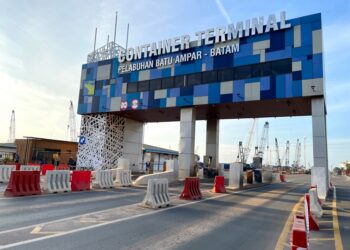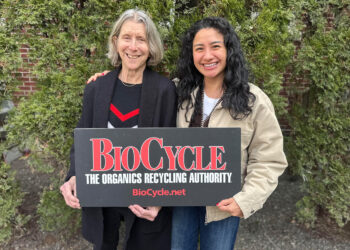A legal petition filed last week claims a mixed-waste processing facility being built by Waste Management in California could harm source-separation efforts.
The facility in question is a Waste Management project at its Davis Street Transfer Station, a 53-acre site in San Leandro, Calif, which is outside of Oakland. The phased project, estimated to cost more than $120 million, will include an organics recovery facility (O-MRF). With an initial capacity of 150,000 tons per year, it will pull remove recyclables and organics from municipal solid waste headed to landfill. Later phases will include composting and anaerobic digestion facilities.
The petition was filed by Alameda County, Calif. residents Arthur Boone and Antoinette Stein. Boone runs the Center for Recycling Research in Berkeley, Calif. and is a former board member of the Northern California Recycling Association. Stein is an environmental educator who serves on the Alameda County Source Reduction and Recycling Board.
Their petition, filed in Alameda County Superior Court, claims the county failed to adequately evaluate the project’s impacts on the surrounding community, analyze alternatives to the mixed-waste processing facility, consider mitigating measures and address the project’s compliance with state air-quality requirements. Named in the petition are Waste Management, the Alameda County Waste Management Authority (also known as StopWaste), and the cities of San Leandro and Oakland.
“Petitioners bring this action on their own behalf because of their great love of the environment, especially local air quality, and their concern for the highest and best use of all discarded materials,” they wrote.
Source-separation concerns
The facility’s genesis was Oakland’s ambitious diversion efforts, which include mandatory source-separation requirements for multi-family and commercial buildings. The O-MRF is intended to augment existing recycling efforts through capturing recyclable and compostable materials that end up in the trash (see related article covering different potential roles for mixed-waste systems).
Although Waste Management has stressed it does not view the facility as a replacement or alternative to source separation, the petition expresses concern that citizens could become less diligent in their separation efforts when they learn about the O-MRF.
“If it’s known that people drive faster when they know the police are elsewhere than the highway they are driving on, it makes sense to believe that multi-unit residential waste receptacle users will be less attentive to the green cart if they know somebody somewhere will sort out their recyclables and compostables from the trash cart,” the petition states.
The same fears were raised by board members of the county waste management authority during a February hearing on the project. Shawn Tackitt of Waste Management acknowledged those fears and explained the company has not publicized the project for that very reason.
The petition also alludes to the potential for the O-MRF to recover lower-value recyclables due to their contamination with waste. The facility “may make life simpler but it creates end goods of questionable quality at a higher cost,” the petition states.
Alleged procedural violations
Although they criticize the mixed-waste sortation concept, the petitioners’ request rests largely on alleged procedural errors with the facility’s approval. The petitioners claim a number of changes were made over the many years of planning the project and that public notice and hearings were not provided in several cases.
The petitioners also allege the project will have significant environmental impacts that have not been addressed, due to increases in on-site composting capacity over the course of planning without subsequent revisions to the issued air-quality permits.
The filing asks Alameda County Superior Court to remand the county’s approval of the project for “further proceedings requiring notice and a public hearing to the appropriate administrative agencies.”
Waste Management spokeswoman Karen Stern said the company’s policy is to not comment on active litigation. StopWaste also declined to comment on active litigation, although spokesman Jeff Becerra added that the City of San Leandro is the lead agency on the project and StopWaste’s role is to determine if the project conforms to the county’s waste management plan.
Officials in the cities of Oakland and San Leandro could not be reached by Resource Recycling for comment by press time.

































